English Edition

- By CNI
- Category: English Section
- Hits: 310
CNI News
January 25, 2026
A clash broke out between the National Socialist Council of Nagaland-Khaplang/Ang Mai (NSCN-K/AM) and the National Socialist Council of Nagaland-Khaplang/Yung Aung (NSCN-K/YA) in Nanyun Township, located within the Naga Self-Administered Zone of Upper Sagaing Region, on January 24, 2026.
At 1:00 AM on January 24, the Mobile-6 Battalion of the NSCN-K/AM launched an attack on the NSCN-K/YA forces stationed in Taik Village, Nanyun Township, which is situated between the towns of Lahe and Nanyun.
The NSCN-K/AM released a statement regarding the incident:
"In response to continued threats and bullying by the Yung Aung (YA) group, the Mobile-6 Battalion of the AM forces has expanded its military counter-operations within Nanyun Township. On January 24, 2026, at 1:00 AM Myanmar Standard Time, the Mobile-6 Battalion attacked members of the Yung Aung (YA) group stationed in Taik Village."
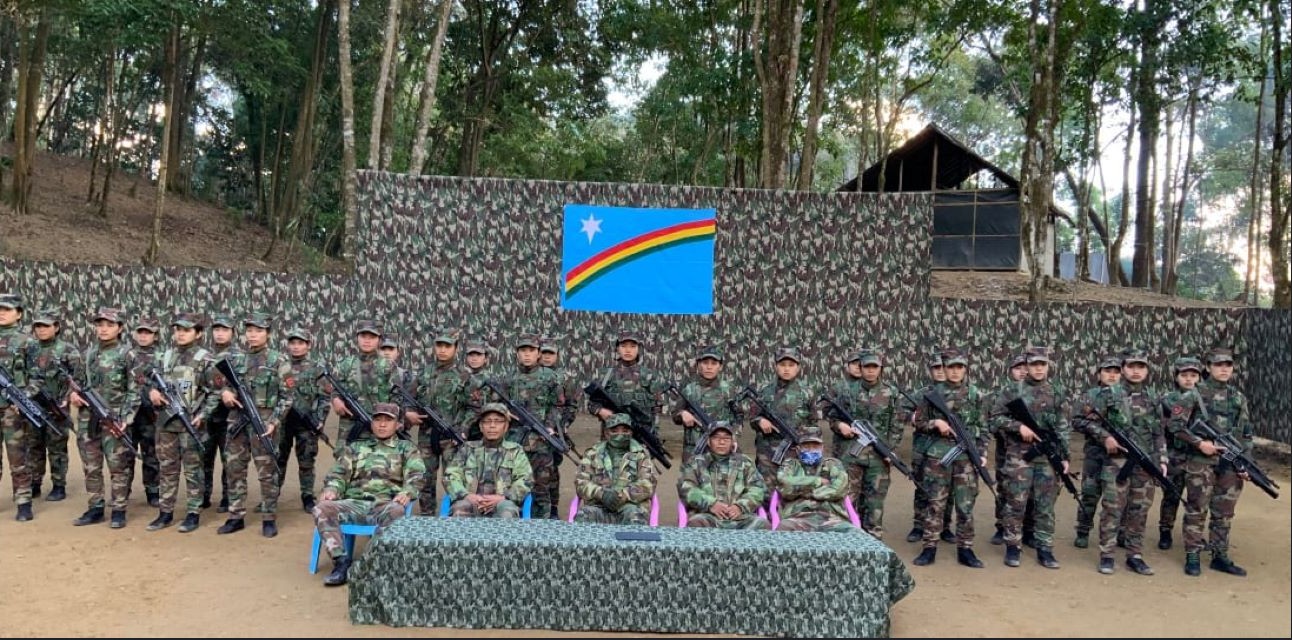
NSCN-K/YA
According to the NSCN-K/AM's report, at least three members of the NSCN-K/YA were wounded during the engagement.
The two factions are currently locked in a power struggle for territorial control within the Naga region. Key events leading up to this clash include:
January 1, 2026: NSCN-K/AM forces arrived and took up positions in Pansaung, aiming to control the only border gateway to India in the Naga region.
January 9, 2026: NSCN-K/YA forces attacked the NSCN-K/AM, resulting in two deaths and one injury on the NSCN-K/AM side.
January 12, 2026: NSCN-K/AM retaliated at 6:00 AM by attacking NSCN-K/YA forces at the "18-mile" location between Takar and Nampha in Nanyun Township, successfully seizing a NSCN-K/YA camp.
Currently, several armed organizations are active in the Naga Self-Administered Zone, including:
NSCN-K/YA (Led by Yung Aung), NSCN-K/AM (Led by Ang Mai), ENNO/ENDA (Led by Aung Seng), NSCN-IM (Isak-Muivah), NSCN-IM/H (Led by Hanshi Ramsan, a breakaway from IM), NPDF (Naga People's Defence Force)
Additionally, Meitei and Assamese armed groups are also known to be based and active in the area.

- By CNI
- Category: English Section
- Hits: 190
CNI News
24 January 2026
The Union Election Commission (UEC) clarified to CNI News that while it was announced that elections could not be held in several towns within the Sagaing Region—specifically Kawlin, Banmauk, Tigyaing, Indaw, and Pinlebu—the recent announcement regarding 9 representatives was merely the designation of representative townships under the Proportional Representation (PR) system.
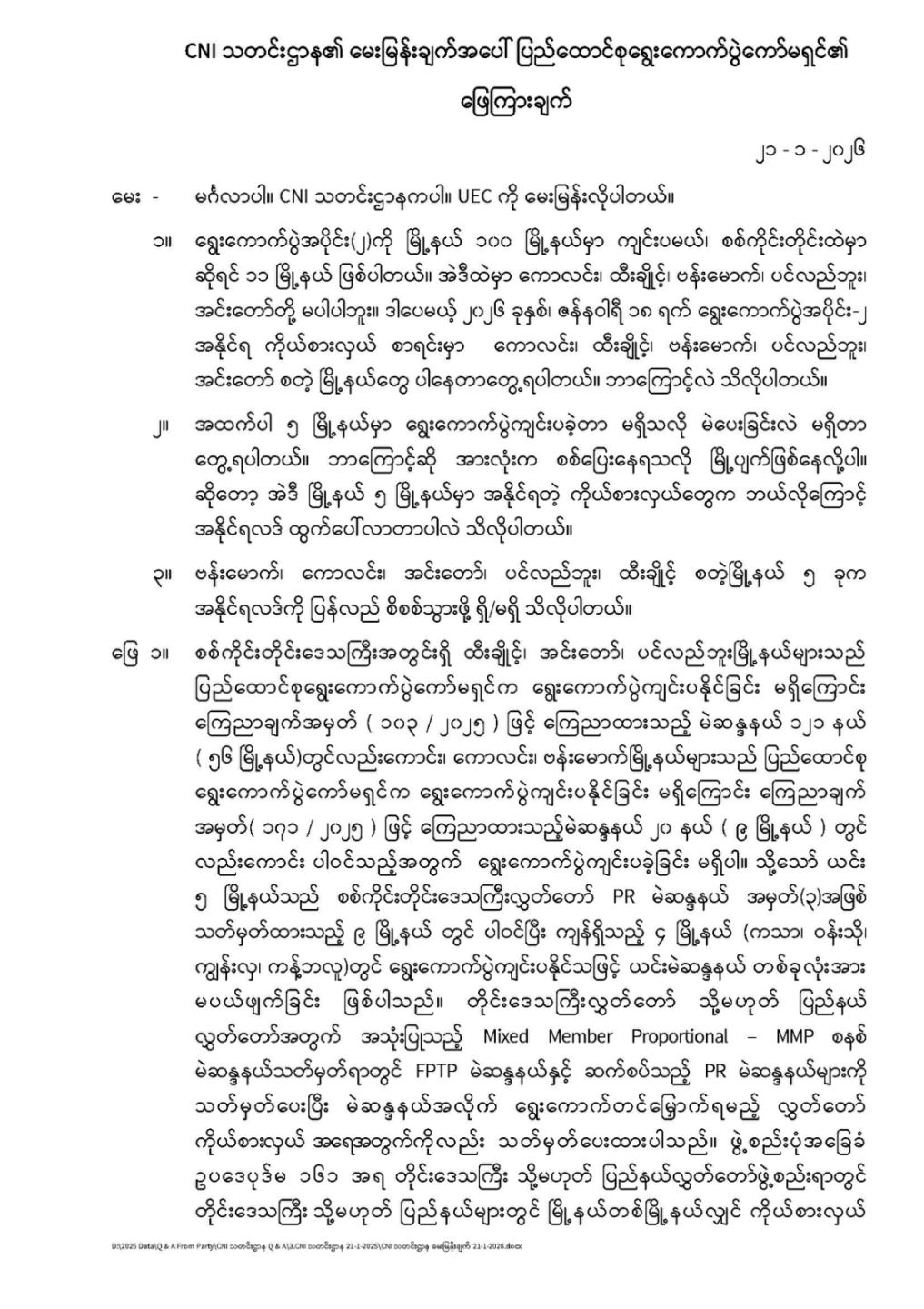
Although elections were not physically conducted in Tigyaing, Kawlin, Indaw, Pinlebu, and Banmauk during Phase 2 of the elections held on January 11, 2026, a list of "winning" candidates was confirmed and released.
The UEC issued this explanation to address the confusion surrounding the status of these constituencies.

- By CNI
- Category: English Section
- Hits: 229
CNI News
January 23, 2026
Daw Lwin Lwin Mar, a candidate who competed in the 2025 General Election, submitted her resignation from the People's Party (PP) on January 23, 2026.
Daw Lwin Lwin Mar served as an Executive Committee member for the Mandalay Region and as the Secretary for Amarapura Township within the People's Party. She submitted formal notice today to resign from all these positions.
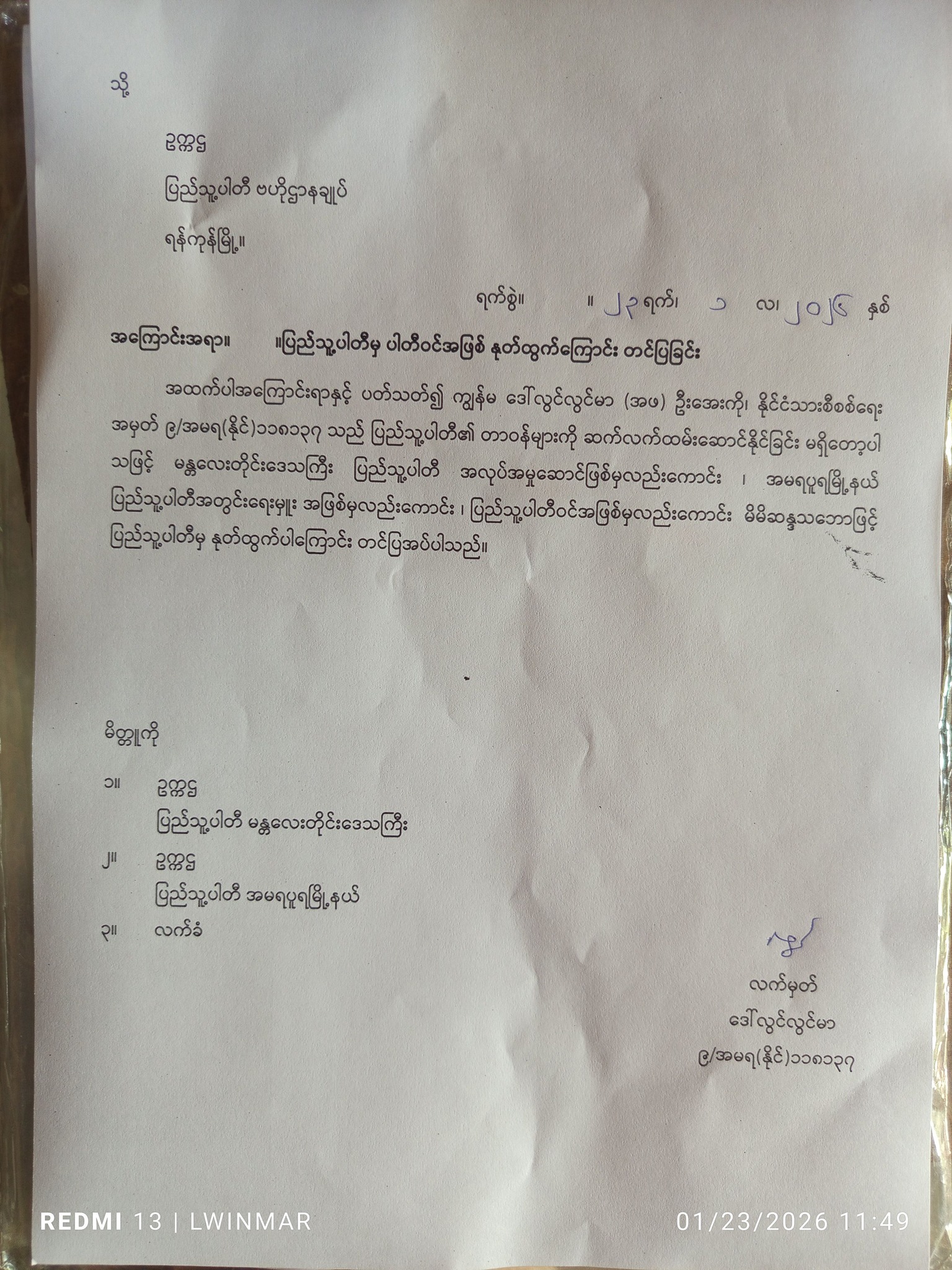
She represented the People's Party as a candidate for the Pyithu Hluttaw in Amarapura Township during the 2025 General Election.
She lost the seat to the candidate from the Union Solidarity and Development Party (USDP).

- By CNI
- Category: English Section
- Hits: 182
CNI News
January 23, 2026
Vice Chairman of the State Security and Peace Commission, Vice Senior General Soe Win, met with General Direk Bongkarn, Head of the Neighboring Countries Coordination Center (NCCC) under the Royal Thai Army Operation Center, in Nay Pyi Taw on January 22, 2026.
During the meeting, they discussed the following key areas:
Border Stability and Trade: Cooperation between the two governments and their respective armed forces to maintain peace and stability in border regions to restore bilateral trade and the flow of goods.
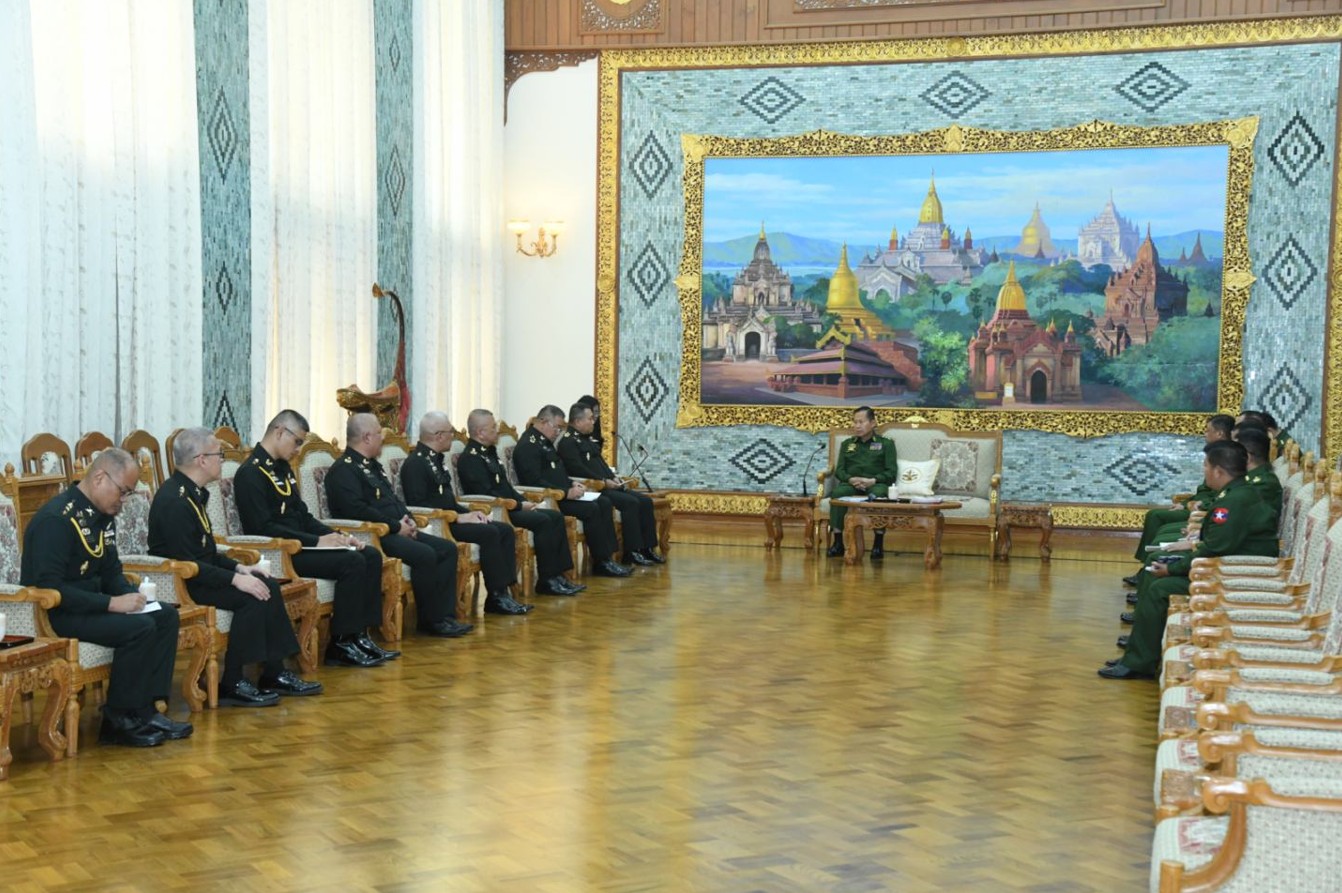
Combatting Illegal Activities: The necessity of working together to prevent illegal trade and illicit businesses along the borders.
National Security Priorities: The Myanmar government’s commitment to treating the prevention of a resurgence in online scams and gambling, as well as anti-drug operations, as a national responsibility.
Information Sharing: Increasing collaboration and the exchange of information between the two nations.
Election Updates: Nay Pyi Taw reported that they discussed the successful completion of Phases 1 and 2 of the 2025 General Election, as well as plans to proceed with Phase 3 on January 25.

- By CNI
- Category: English Section
- Hits: 174
CNI News
23 January 2026
The government in Nay Pyi Taw has issued a set of guidelines that the public must observe when expressing support for the Myanmar delegation (Agent of Myanmar), led by Minister U Ko Ko Hlaing, which is currently presenting its case at the International Court of Justice (ICJ) in The Hague, Netherlands.
As the "Agent of Myanmar" team is currently undergoing legal proceedings in accordance with international laws, Nay Pyi Taw released four specific points for supporters to strictly follow—whether they are posting on social media or organizing support rallies in various towns and villages.
The four points are as follows:
Strictly avoid criticizing or insulting the ICJ court and its judges, and refrain from any speech or writing that could be perceived as applying pressure on them.
Do not use racially discriminatory language or expressions in speech, writing, or on handheld placards and banners.
Do not use the names of ethnic groups that are not recognized among the official indigenous ethnicities of Myanmar to spread hate speech.
Focus support solely on the fact that the "Agent of Myanmar" delegation is defending the case in court with solid evidence in accordance with international laws.
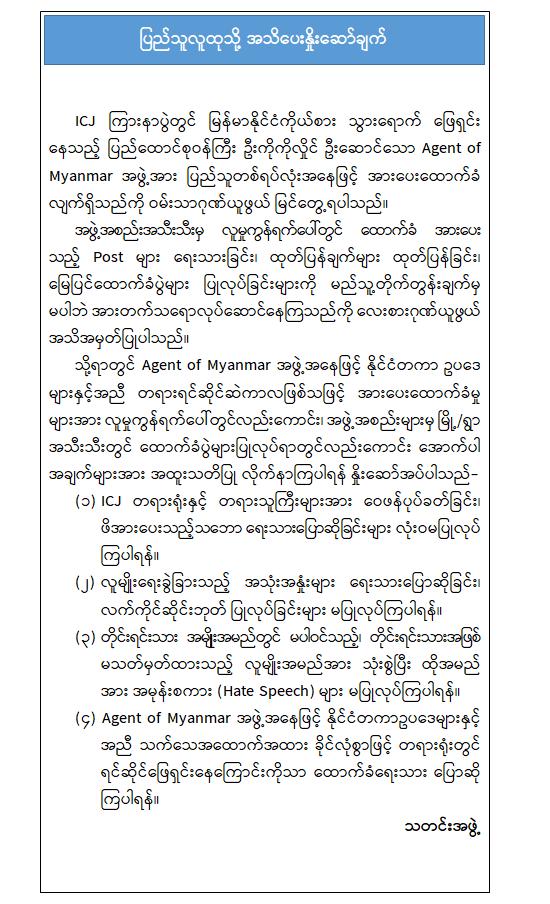
In 2016–2017, following simultaneous attacks by the ARSA terrorist group on 30 border guard outposts in Rakhine State, Hindus, Rakhine, and other ethnicities were killed.
Subsequently, the Myanmar military (Tatmadaw) conducted area clearance operations, leading to the displacement of Bengalis who fled toward Bangladesh.
Under these circumstances, Gambia filed a lawsuit at the International Court of Justice (ICJ) in The Hague, alleging that Myanmar committed genocide.
Myanmar has taken responsibility for responding to and resolving these allegations.
Accordingly, the ICJ is conducting hearings regarding the genocide allegations against Myanmar from January 12 to January 29, 2026.
A delegation led by Minister U Ko Ko Hlaing and Union Attorney General Daw Thida Oo is currently in attendance to represent the case.
Inside Myanmar, preparations are underway to hold ceremonies and rallies to express support for the Myanmar delegation currently facing the legal battle at the ICJ.

- By CNI
- Category: English Section
- Hits: 283
CNI News
23 January 2026
Based on conflicts between Myanmar migrant workers and Thai citizens inside Thailand, some Thai political parties are politically exploiting Myanmar migrant workers, according to migrant worker rights activist U Min Oo, who spoke to CNI News.
He said that clashes between some Myanmar workers and Thai youths have occurred repeatedly in Thailand. In recent days, Thailand’s Department of Employment announced that it would conduct inspections and take strict action against illegal foreign workers inside the country.
U Min Oo told CNI News that some elected Thai political parties are taking advantage of these conflict incidents as opportunities for political gain.
He said:
“Based on this issue, other forms of political exploitation could also arise. Starting from incidents that occurred recently, we are seeing daily conflicts between Myanmar and Thai nationals, arrests, and, in between, criminal acts committed by some migrant workers. These incidents are increasing day by day. Based on this situation, some political parties and candidates contesting elections are including this issue in their campaigns and using it for their benefit. On their social media platforms, we can see advertisements like this. They are incorporating this issue into their party policies, claiming that they are addressing migrant worker problems and related issues in order to protect national security. We are seeing these themes included in their campaign messaging. When this happens, Thai citizens develop misunderstandings and negative perceptions toward Myanmar migrants, and they become more cautious of them. As a result, life becomes increasingly difficult in every aspect—housing, food, and daily living—for migrant workers who are honestly working and earning a living.”
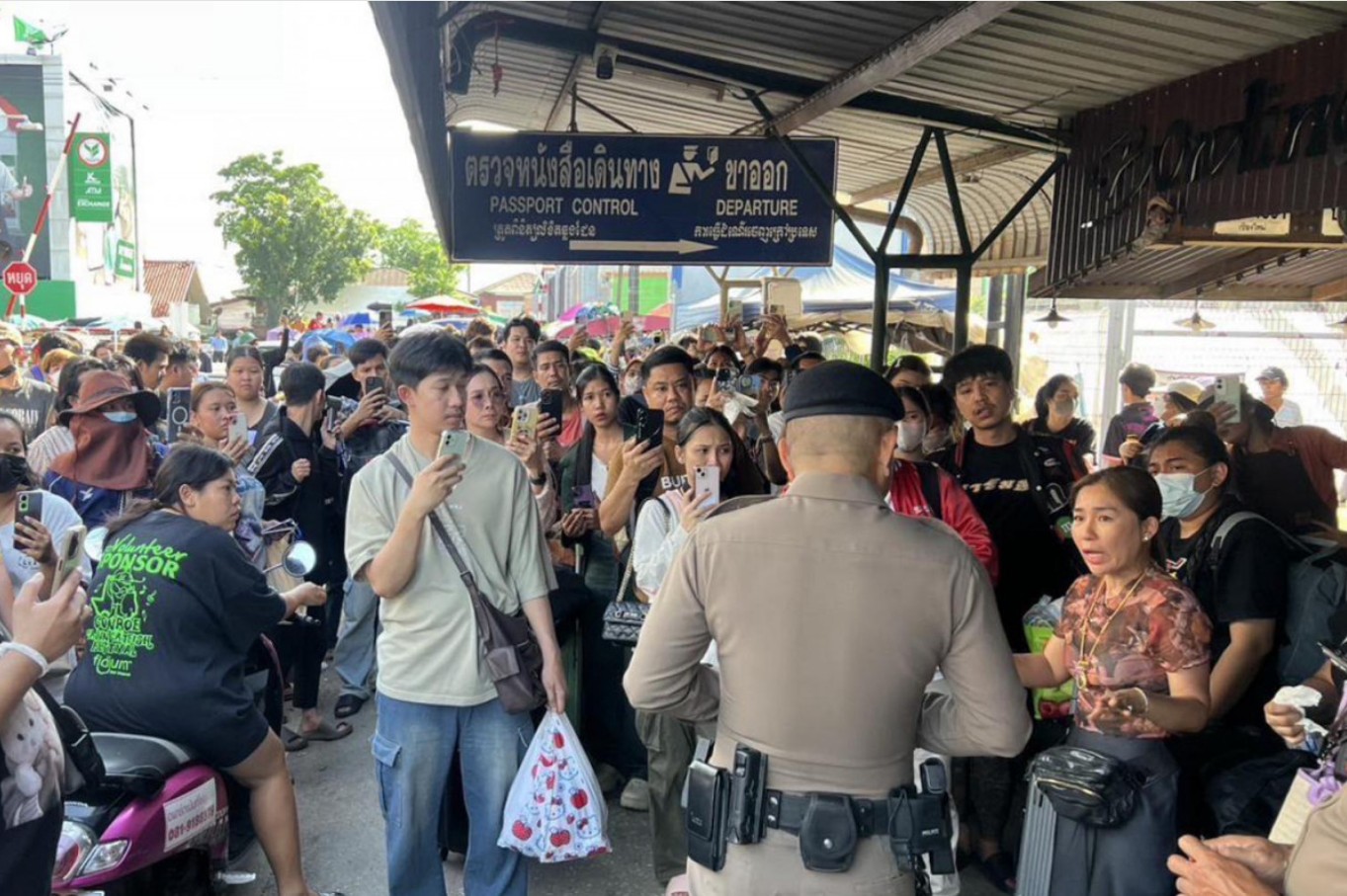
Thai authorities and migrants seen
He added that Myanmar migrant workers have previously experienced political exploitation by politicians in Thailand, and therefore it is extremely important for Myanmar nationals to avoid involvement, as much as possible, in the political and ethnic conflicts of another country.
Another migrant worker rights activist, U Aung Kyaw, told CNI News:
“Regarding this issue, I have lived in Thailand for decades, and we have heard before that migrant workers were exploited by politicians in such ways. However, we do not have concrete evidence. Still, I have heard that they were used through efforts to mobilize manpower, sometimes by offering social assistance or small benefits. This time as well, it cannot be ruled out. Politicians may use or exploit people to achieve their objectives. Therefore, what I want to say in advance is that since this is not our home country, we do not have the right to vote. As guests, we must avoid, as much as possible, involvement in political relations and ethnic conflicts.”
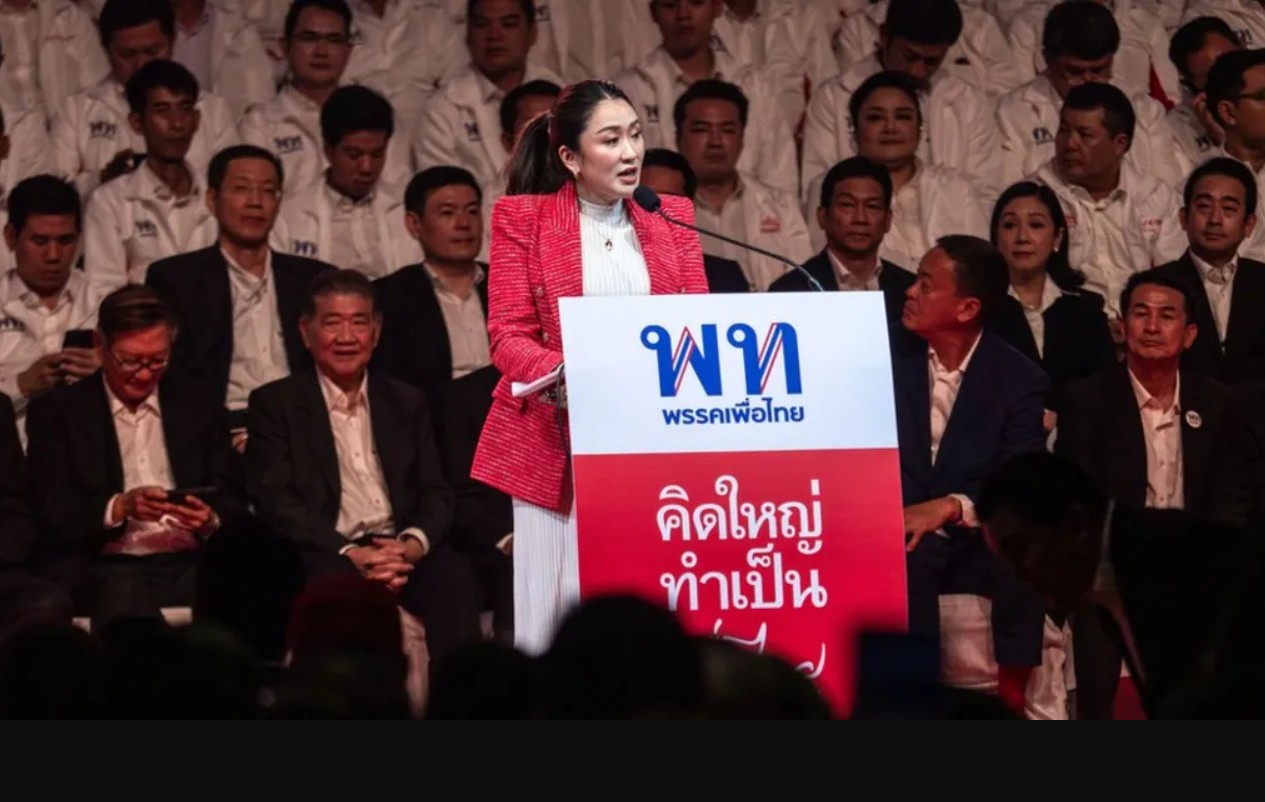
Pheu Thai Party campaigning
Amid these conflict situations, Myanmar nationals are advised to live cautiously and adapt to their surroundings. Migrant worker advocates in Thailand warn that there are also ultra-nationalist Thai groups, and therefore Myanmar migrants need to live carefully, wisely, and with heightened awareness.
Thailand is scheduled to hold an election in February 2026. Political parties are actively campaigning with various policies to win votes, and nationalist groups—referred to as “handlebar mustache nationalists”—are also paying close attention to Myanmar migrant workers, according to reports.

- By CNI
- Category: English Section
- Hits: 432
CNI News
23 January 2026
Myanmar’s Commander-in-Chief of the Defense Services, Senior General Min Aung Hlaing, is the subject of analysis among military and political observers regarding how he could assume the presidency after the election while also maintaining control over the Myanmar Armed Forces (Tatmadaw).
Under the 2008 Constitution, if Senior General Min Aung Hlaing were to become President and govern the country after the election, he would be required to resign from his role within the Tatmadaw.
Article 63 of the 2008 Constitution stipulates that if the President or Vice Presidents are Members of Parliament, they must resign as MPs; and if they are civil servants, they must resign or retire from civil service from the day they are elected as President or Vice President.
Therefore, similar to how Daw Aung San Suu Kyi assumed the position of State Counsellor during her tenure by using Article 217, Senior General Min Aung Hlaing could also adopt a certain title or role to exercise control over both the government and the military, according to political analyst Sai Min Hlaing, who spoke to CNI News.
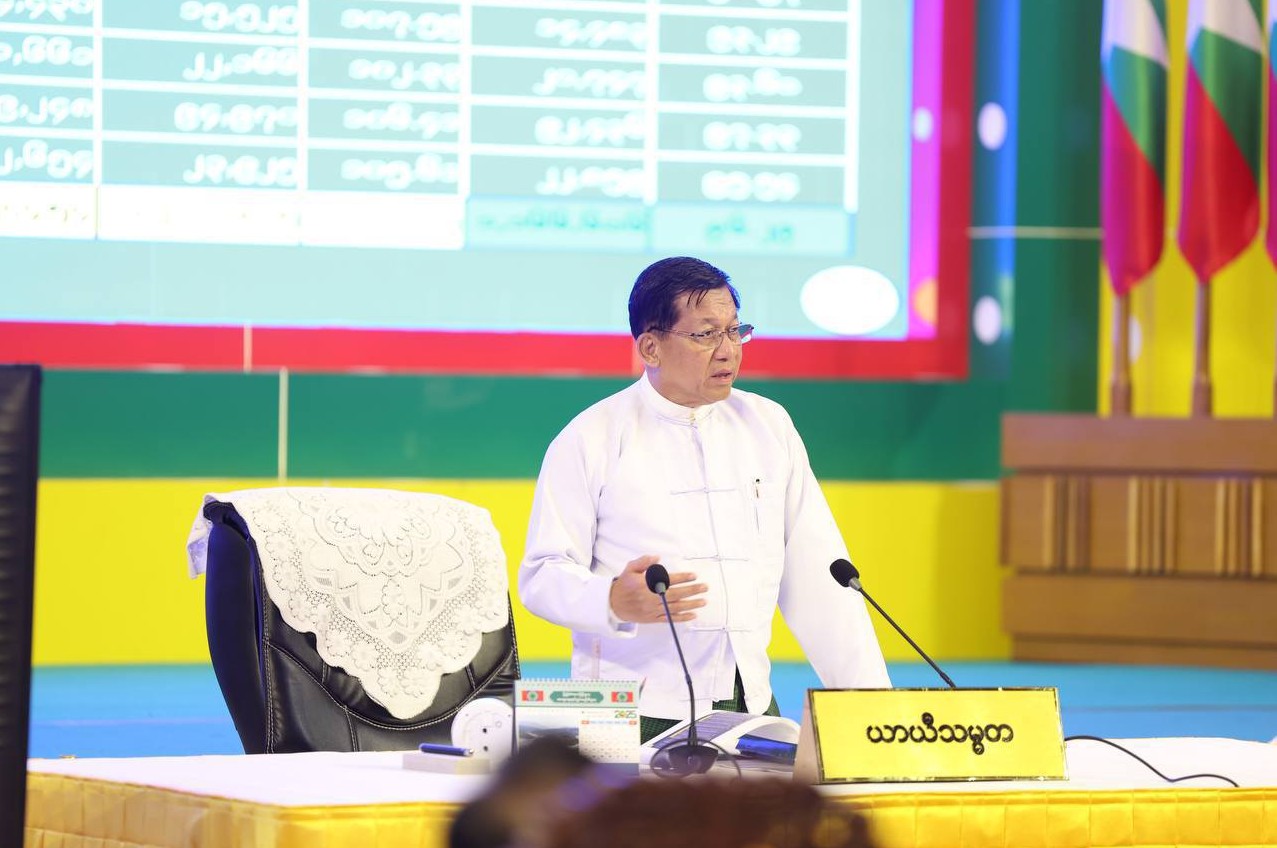
Acting President Senior General Min Aung Hlaing seen
He said:
“If Senior General Min Aung Hlaing truly becomes President, then first, he will be President, and second, he will effectively act like a supreme military commander. He would be both the President and the supreme commander. If he is the supreme commander, that is the highest position in the military. Officially, there is the post of Commander-in-Chief of Defense Services. But our country does not really operate under a clear ‘supreme commander’ system, so that title is not very prominent. However, if he becomes President, he would still effectively be the top leader of the military. The newly appointed Commander-in-Chief would remain under him, because the President would be the supreme commander of the Tatmadaw.”
Article 217 of the 2008 Constitution states that, without contravening constitutional provisions, executive power of the Union is vested in the President.
This wording does not mean that the Union Parliament cannot assign duties and powers to any authority or individual. Nor does it mean that duties and powers assigned under existing laws to relevant authorities or individuals are transferred to the President.
However, if Senior General Min Aung Hlaing were to use this article as a political maneuver, he would have to remain behind the scenes. In that case, he could oversee matters through a council composed of retired officials, according to Dr. Aye Maung, Chairman of the Arakan Front Party (AFP), who spoke to CNI News.
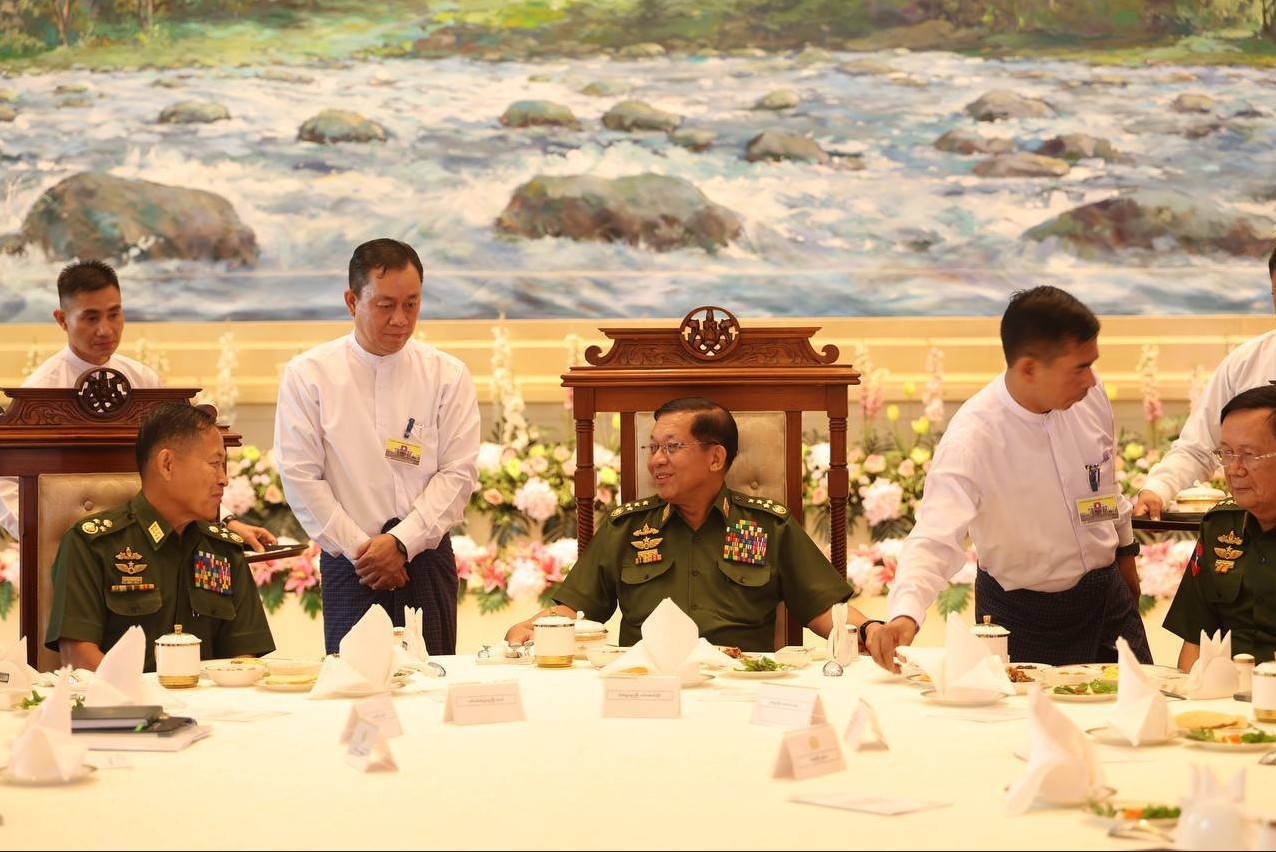
Senior leaders of the Myanmar Tatmadaw seen
Dr. Aye Maung said:
“If Senior General Min Aung Hlaing leads the transitional period, and if he tries to operate under Article 217 in relation to the Tatmadaw, then he would have to stay in the background. Alternatively, he could rely on a behind-the-scenes body—perhaps the current National Defense and Security Council. Would that council be led by Soe Win, or would Min Aung Hlaing himself, as a retired officer and President, be involved? Regarding the Defense Services Act, a council composed of retired officers could be formed to support and oversee the Commander-in-Chief. Such a council could be designed by amending the Defense Services Act to create a position with full authority, though without salary. As a retired Commander-in-Chief, even as a pensioner, it cannot be ruled out that he could still supervise and guide the Tatmadaw toward becoming a more systematic and modern military. However, using Article 217 for this purpose does not seem likely.”
In addition, a military observer told CNI News that the Tatmadaw can form defense councils as needed, and by consolidating such a council, it could control both the presidency and the military.
The observer said:
“The Constitution grants the Tatmadaw autonomy to manage its own affairs. This gives the military considerable authority. A defense council also holds significant power regarding military matters. How extensive those powers would be is unclear. What is certain is that if he becomes President, he must leave the military. The roles of President and Commander-in-Chief cannot be held simultaneously. He also would not be able to serve directly on the defense council in that capacity. However, if such a council is formed independently by the military—since it is not a constitutional body—the Tatmadaw can establish it whenever necessary. In that sense, he could still retain influence. If he wants to form one, he can. So far, we have not heard that such a council has been formed.”
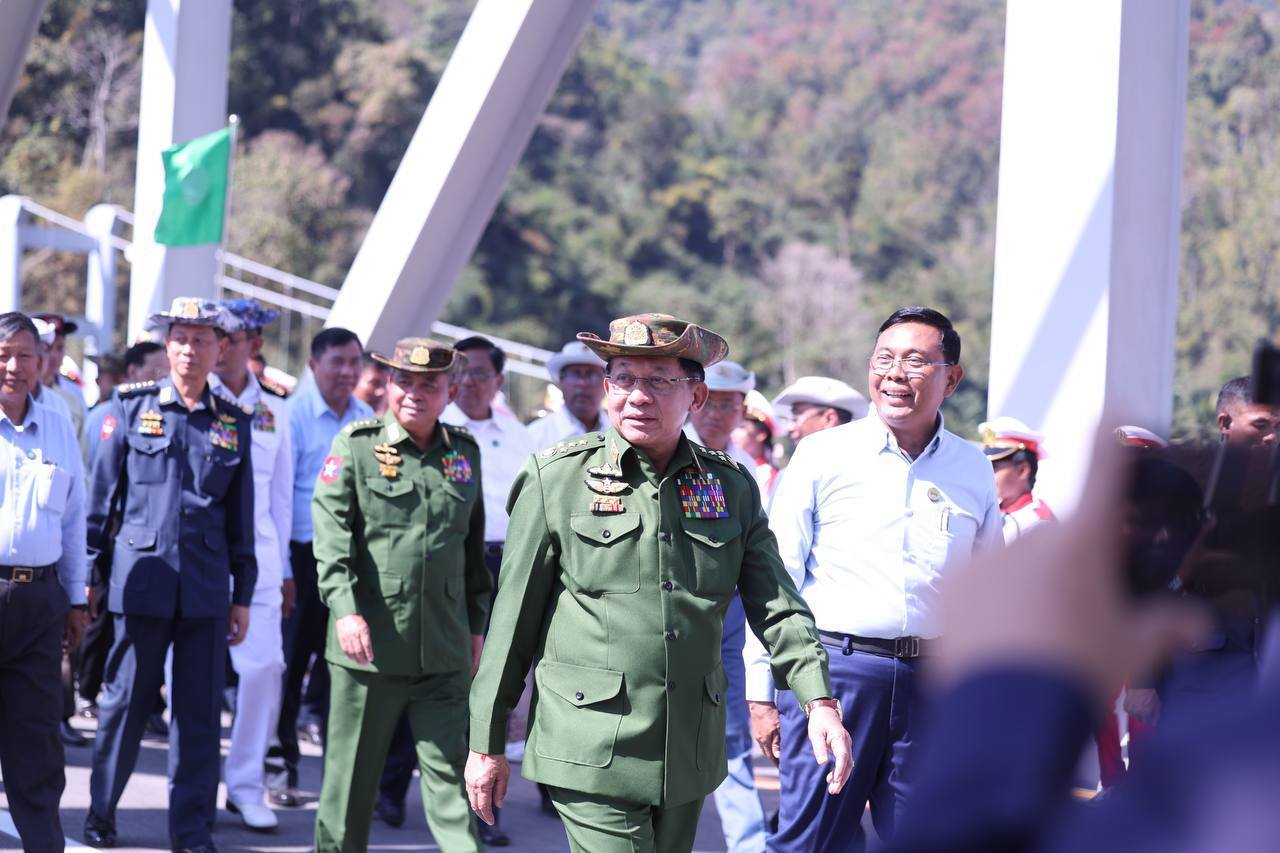
Senior leaders of the Myanmar Tatmadaw seen
At present, both international circles and domestic military and political analysts believe that Senior General Min Aung Hlaing could become President after the election.
However, if he assumes the presidency, he would be required to retire from or resign his position in the Tatmadaw. As a result, analysts believe he may seek a legal pathway that would allow him to control both the presidency and the military.
If such steps are taken, certain provisions of the Constitution would first need to be amended. Consequently, observers are closely watching to see what form these actions may take.

- By CNI
- Category: English Section
- Hits: 213
CNI News
22 January 2026
Military and political analysts are offering various perspectives on how leadership changes might unfold within the Myanmar military (Tatmadaw), alongside the new political landscape following the upcoming election.
There are domestic and international assumptions that Senior General Min Aung Hlaing could potentially become the official President in the post-election government.
Questions have been raised about how the military might change if Senior General Min Aung Hlaing assumes the presidency, as he would have to step down from the position of Commander-in-Chief and transfer the role to a trusted successor.
Dr. Aye Maung, Chairman of the Arakan Front Party (AFP), told CNI News that recent reshuffles within the military indicate that young new-generation officers are being appointed to highly critical positions.
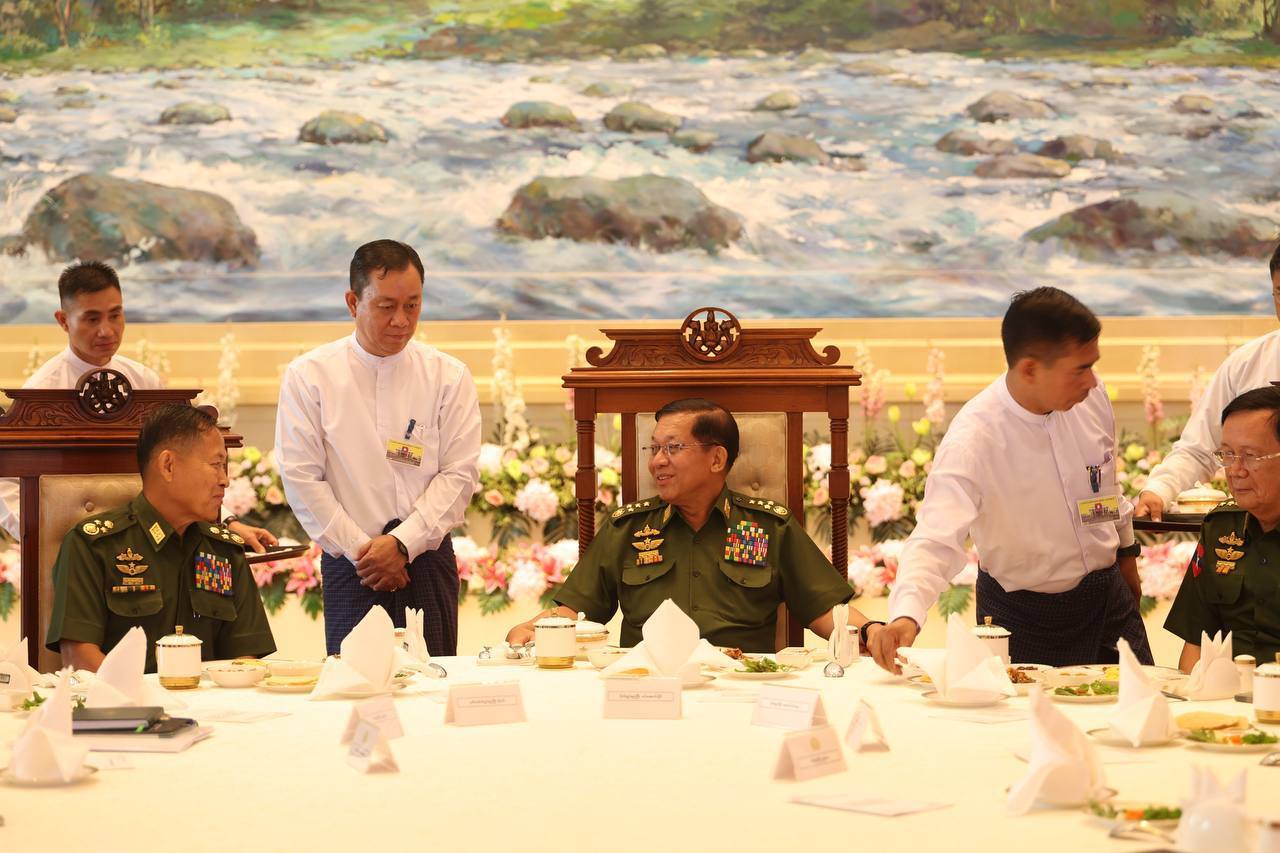
Senior General Min Aung Hlaing and Vice Senior General Soe Win seen together.
"There is a section in the Constitution regarding consultants. I heard during the first parliamentary term that Senior General Than Shwe and Vice Senior General Maung Aye would sit at Office No. 27 under that section during the first transition period, though that later faded away. There is an entry point in the Constitution. I believe it is from the 1953 [Army Act]. Because of that law, there is no age limit for the Senior General and Vice Senior General. In the coming period, the existence of the military is vital as the country is facing many armed conflicts. That is why we see many new generations being given very important roles—for example, the Adjutant General, Quartermaster General, Chief of Staff (Army), and the Chief of the General Staff," he said.
Dr. Aye Maung further noted that there are various ways to analyze whether Senior General Min Aung Hlaing will transition into the Presidency to lead both politics and the military, or whether he will remain in his current role during this period of political and military crisis.
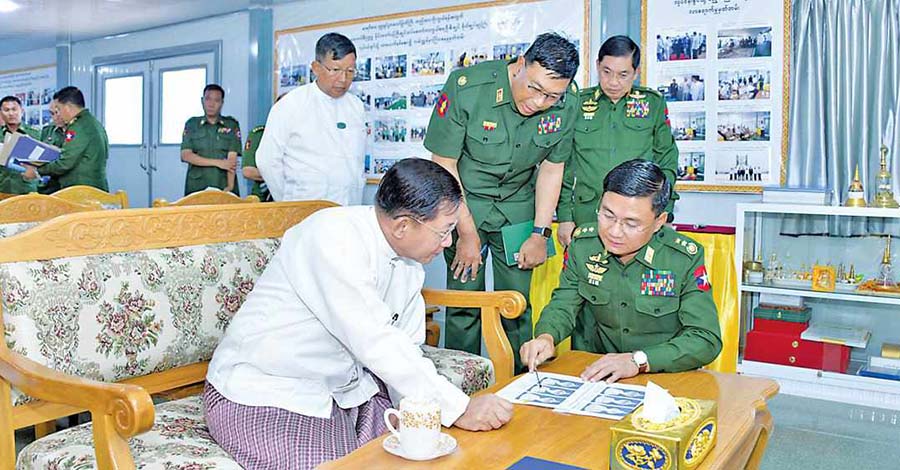
Senior General Min Aung Hlaing and General Kyaw Swar Lin seen together.
He continued, "If we analyze the military's direction: if the Senior General takes the Presidency as many suggest, he would have to relinquish the post of Commander-in-Chief according to the Constitution. So, will he transition to President? If they want to change those important sections [to hold both roles], it would be difficult as the Constitution requires a referendum. Therefore, in this current crisis, will U Min Aung Hlaing remain as Senior General, or will he create a situation to lead both politics and the military as President? In another sense, will one of the two current top leaders stay above the Commander-in-Chief? Will Senior General Min Aung Hlaing become President while the Vice Senior General stays at a place like Office No. 27? Will a new Commander-in-Chief emerge? I think the military itself has already analyzed and decided how to navigate this based on the current political and military situation."
Senior General Min Aung Hlaing has previously stated that state power will be transferred to the government that emerges after the election and that the military will then focus solely on national defense duties.
Individuals currently drawing public interest as potential future Commanders-in-Chief of the Myanmar military include Vice Senior General Soe Win and General Kyaw Swar Lin.

- By CNI
- Category: English Section
- Hits: 225
CNI News
22 January 2026
Following the results of the multi-phase elections held in Myanmar, the incoming government is expected to remain under the direct leadership of the military, political analyst Sai Mein told CNI News.
He stated, "In truth, even during the U Thein Sein government era, military generals shed their uniforms before being elected. Back then, the presidential candidate was predictable. However, based on the current situation, many analysts see a developing 'game' regarding whether the military leader himself will take the presidency, or whether he will remain Commander-in-Chief to maintain control over the military. To be blunt, the government emerging in 2026 will still be one that aligns with the military's wishes. No matter how it is composed or formed, it will remain a government dominated and led by the military itself."
Political parties are expressing concern that the post-election government will be led by the military and the Union Solidarity and Development Party (USDP), resulting in a highly centralized administration.
These concerns stem from the fact that several high-ranking military officers were transitioned into the USDP to contest the election.
Another political analyst told CNI News that while there may be internal policy differences between some senior military officers and the USDP, the selection of a president within parliament (Hluttaw) will likely follow the party’s central decision.
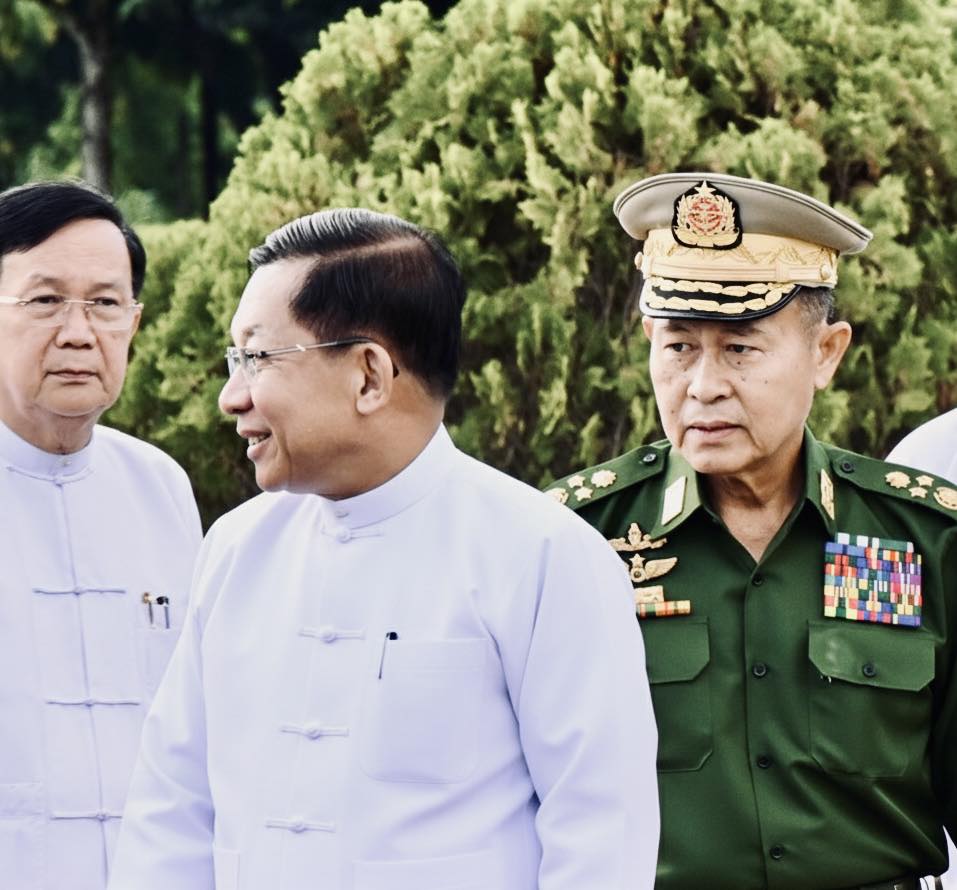
Military leaders seen.
"Although there are internal differences within the USDP, if the leadership reaches a consensus, they will likely vote accordingly," the analyst said. "For example, while it was generally said during the first parliament that representatives could decide for themselves, there were instructions on whom to vote for in critical matters. Since choosing a president is a vital issue, it will likely be guided by party decision—whether to vote for the Vice President nominated by the Pyithu Hluttaw or the one nominated by the military. They will likely decide who to nominate for the presidency only after reaching an agreement within the parliament."
In his message for the 78th Independence Day on January 4, 2026, Senior General Min Aung Hlaing, Chairman of the State Security and Peace Commission, stated that a government characterized by fairness, high voter distribution, and stability would be formed.
He stated, "By utilizing both the First-Past-The-Post (FPTP) and Proportional Representation (PR) systems, we will form governments that are fair, representative, and stable. State responsibilities will be handed over to the government emerging from the election results in accordance with democratic standards."
Political analysts point out that while some ethnic minority candidates ran uncontested under the PR system, simply including these minorities in the government does not yet constitute a practical political solution for the general public.



